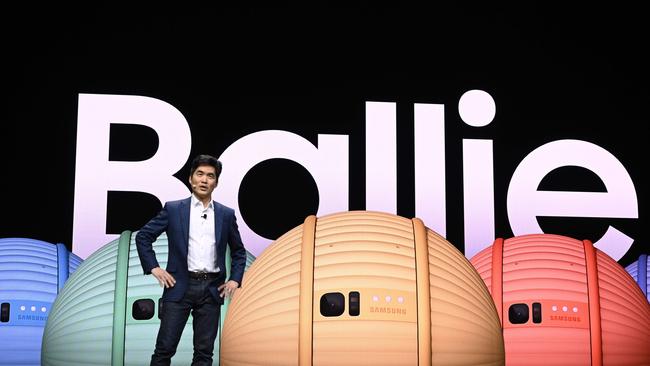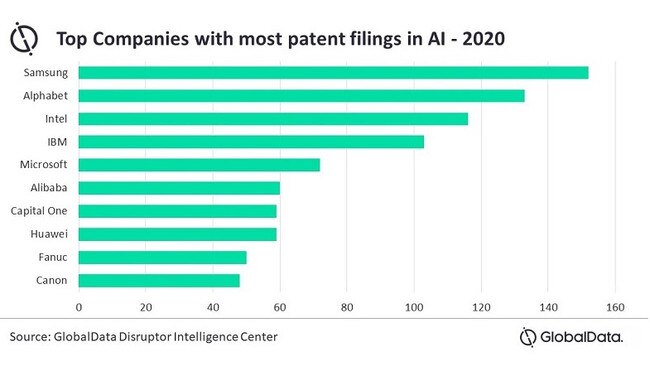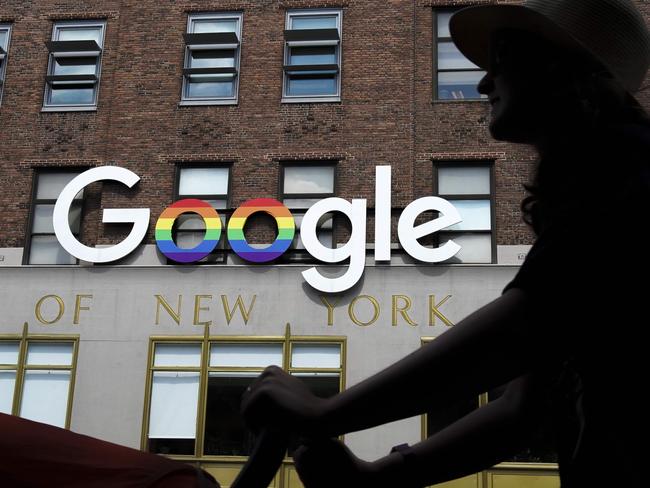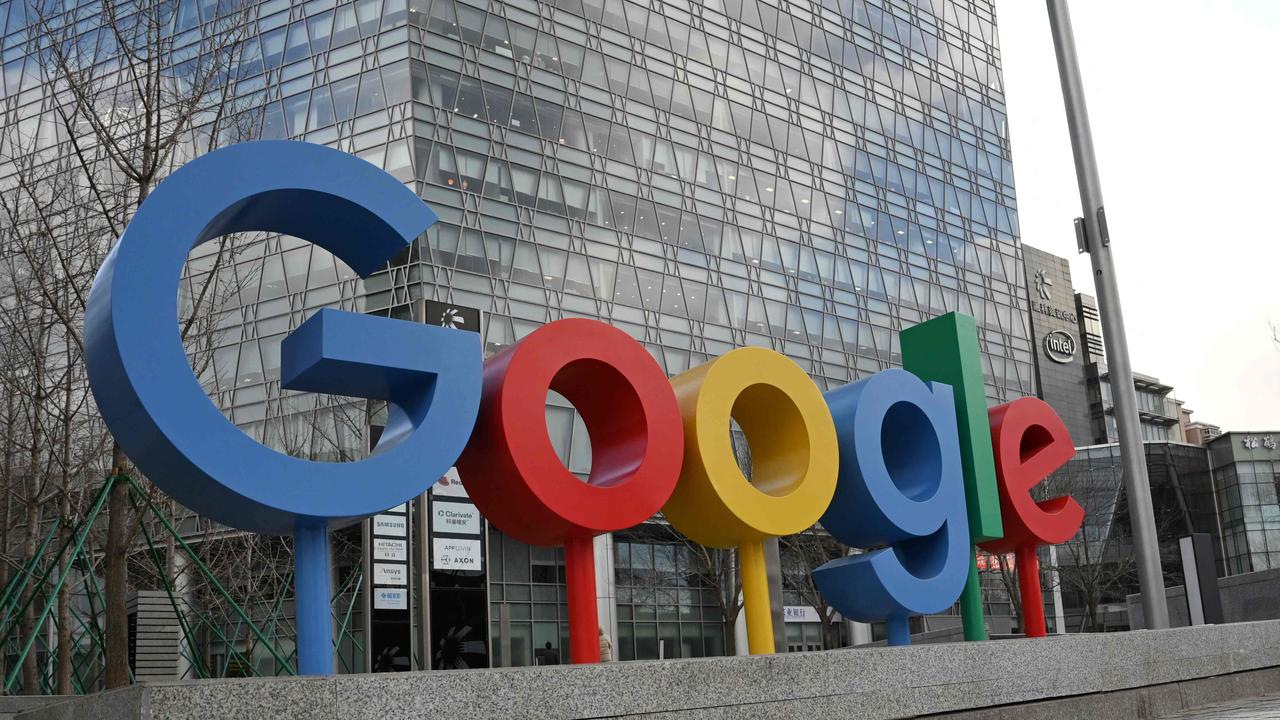Samsung tops AI patent list
Samsung filed the largest number of artificial intelligence related patents in the US in 2020.

Hello and welcome to The Download, The Australian’s technology blog for the latest tech news.
Chris Griffith4pm: Samsung tops AI patent list
Samsung has topped a filings’ database with the largest number of patents in the US in 2020 related to artificial intelligence.
GlobalData, which released the filing information, says the huge number of patent filings in AI indicate a paradigm shift from theoretical research. “Tech incumbents with deep pockets are poaching top AI talent from universities to develop practical applications,” says Venkata Naveen, senior disruptive tech analyst at GlobalData.

GlobalData says Samsung filed the highest number of AI patents beating the technology giants in the top ten list, followed by Alphabet, Intel, IBM and Microsoft. “The Korean company is expanding its research scope around AI technologies focused on improving lifestyles.”
GlobalData says nearly a quarter of the patents filed by Alphabet were from AI start-ups such as DeepMind, Waymo and Verily, which emphasizes the acquisition spree of AI start-ups by tech giants.
The top 10 list not only has tech giants as major patent filing companies. American Bank’s Capital One made it into the list with AI patents for automating customer support services, followed by robotics company Fanuc and optical products manufacturer Canon. China’s Huawei was at number eight. Apple was not included in the top ten listing.
Joseph Lam3pm: Telstra moves to block scammers
Phone scams cost ordinary Australians more than $48 million last year but a new network blocker rolled out today may just prevent further fraud.
On Tuesday Telstra unveiled new technology which did not only block phone calls based on their location but looked for “behaviours” typical of scammers.
Chief information security officer Narelle Devine said Telstra’s new scam-blocking technology has created an automated number-blocking process rather than individual identification and blocking.
“We’re now blocking around 1.5 million suspected scam calls a week on average, or 6.5 million scam calls a month from reaching our customers,” she told the Daily Telegraph.
“On an active day for the scammers, we can see anything from up to half a million of those calls a day being blocked which is a huge leap for us.”
Telstra had been developing the technology since 2019 and recently began testing across its network, she said.
Joseph Lam11.30am: NSW powers up electric vehicle charging
Four new electric vehicle charging stations will be rolled as part of a $3 million NRMA and NSW Government partnership.
Questions put to NSW Parliament revealed the new charging stations will be stationed at Newell, Barrier, New England, and Kamilaroi highways.
The new stations will join five others in NSW with project completion date expected by the end of 2022.
Stations were completed in Yass on September 7, Wagga Wagga on September 21, Scone pm September 30, Tenterfield on December 7 and Armidale on December 10.
The Tenterfield station had 43 charges as of January 27.
Chris Griffith11.00am: Maryland votes to tax Google, Facebook online ad revenue
A US state has voted to tax the sale of online ads, creating another headache for Google and Facebook. Not only do the tech giants face national action in the US, Australia and in European nations, but at US state level too.

The Maryland tax will range from 2.5 to 10 per cent and will apply per ad depending on the company selling the ad, according to reports. The tax would apply to firms that make more than $US100m per year. The bill says it will apply to digital ads “derived” from within the state.
Reports says some companies will be excluded from levying the tax such as newspapers and broadcasters. The bill says each person that has annual gross revenues derived from digital advertising services in Maryland of at least $US1.0 million in a calendar year must complete a tax return under oath.
Maryland has estimated that the tax will bring in a revenue of $US100 million in the first financial year.
Feelings about the legislation are mixed with some businesses saying the tax will add significantly to costs and others saying business will be better off if the tech giants pay tax. Some say taxation needs to shift from areas where revenue is dwindling into areas where there is high economic activity such as digital advertising.
According to reports, Indiana and Connecticut are considering a similar tax.



To join the conversation, please log in. Don't have an account? Register
Join the conversation, you are commenting as Logout